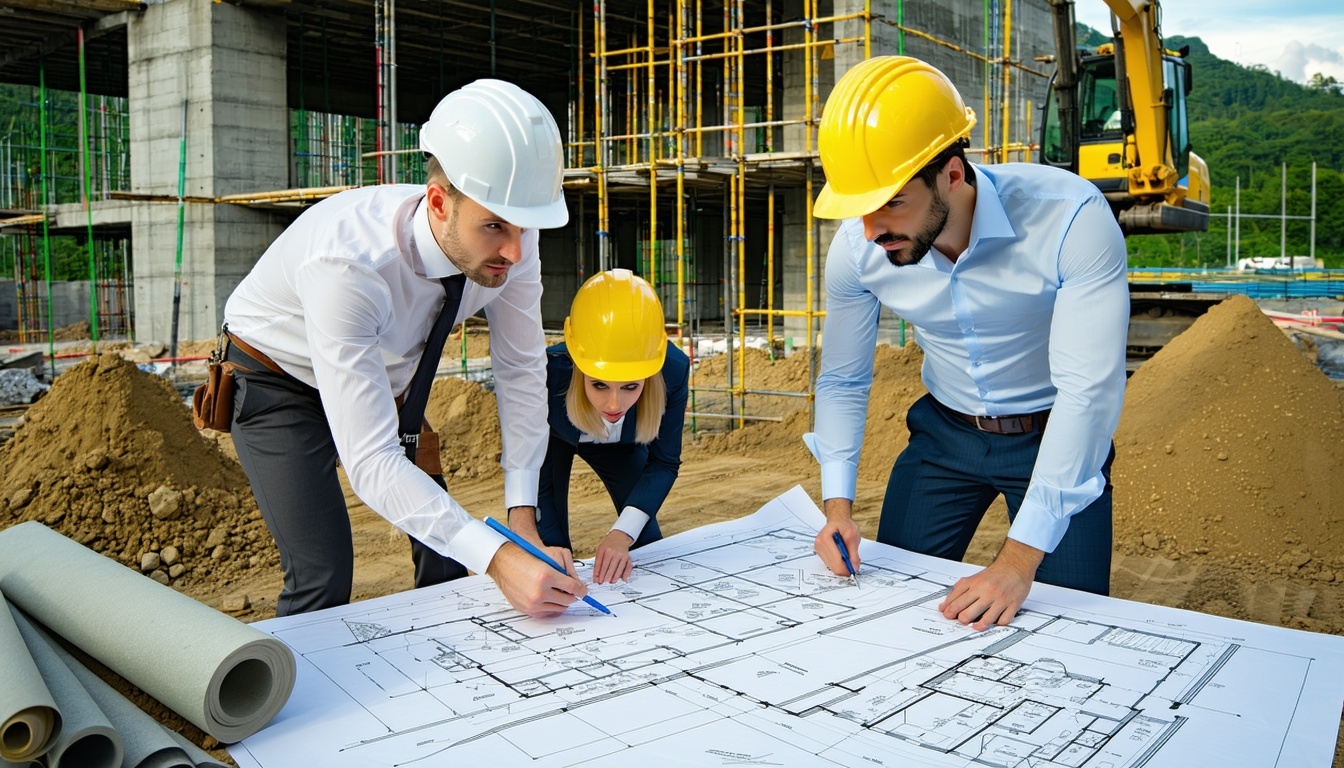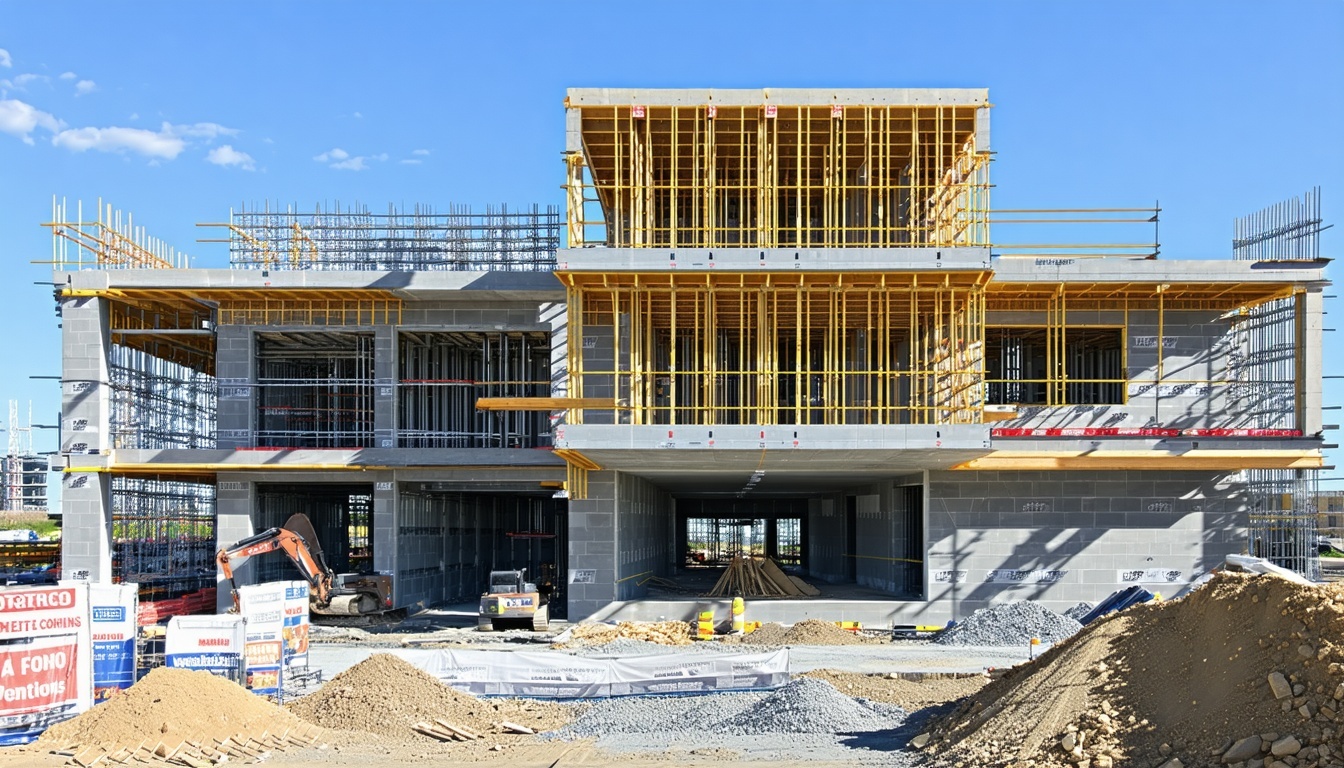Discover how partnering with embodied carbon consultants can fortify construction projects against future challenges while promoting sustainability and marketability.
The Crucial Role of Embodied Carbon Consultants
Embodied carbon consultants are specialised professionals who guide project teams in understanding, measuring, and reducing the greenhouse gas emissions associated with building materials and construction processes. These experts are pivotal in the modern construction industry, where sustainability and environmental impact have become critical considerations. By leveraging their expertise, embodied carbon consultants help project teams navigate the complexities of carbon accounting and implement strategies to minimise emissions effectively.
These consultants are not just advisors; they are integral members of the project team, providing insights from the initial design phase through to completion. Their involvement ensures that projects are not only compliant with current regulations but also future-proofed against evolving environmental standards. By focusing on the embodied carbon aspect, they address a significant portion of a building's total carbon footprint, which is essential for achieving broader sustainability goals.
Industry-Leading Methodologies for Measuring and Reducing Emissions
Embodied carbon consultants employ industry-leading methodologies to provide accurate data and actionable insights. One of the primary tools at their disposal is the life cycle assessment (LCA), a comprehensive method for evaluating the environmental impact of a building over its entire lifecycle. LCAs consider all stages of a building's life, from material extraction and manufacturing to construction, use, and eventual demolition or recycling.
In addition to LCAs, these consultants utilise embodied carbon reporting frameworks that standardise the measurement and reporting of carbon emissions. These frameworks ensure consistency and comparability across projects, facilitating better decision-making and benchmarking. By using these advanced methodologies, embodied carbon consultants can identify high-impact areas and recommend targeted strategies to reduce emissions without compromising on performance, cost, or design intent.
Adding Value Throughout the Project Lifecycle
Embodied carbon consultants add significant value throughout a project's lifecycle. From the early stages of design, they assist in setting project-specific carbon budgets and identifying material choices that have the lowest environmental impact. Their expertise enables project teams to make informed decisions that balance sustainability with other critical project parameters such as cost and performance.
During the construction phase, consultants continue to provide guidance on best practices for minimising embodied carbon. This includes advising on efficient construction techniques, material sourcing, and waste management strategies. Their involvement ensures that sustainability considerations are integrated into every aspect of the project, ultimately leading to a reduced carbon footprint and enhanced project resilience.
Navigating Regulations and Sustainability Certifications
The regulatory landscape for embodied carbon is continually evolving, with new standards and certifications emerging to address the pressing need for sustainable construction practices. Embodied carbon consultants are well-versed in these regulations and can help project teams achieve compliance with local and international mandates. This includes staying up-to-date with certifications such as LEED, BREEAM, and local embodied carbon mandates.
By ensuring compliance with these regulations, consultants help projects avoid potential legal and financial penalties. Moreover, achieving sustainability certifications can significantly enhance a project's marketability, demonstrating a commitment to environmental responsibility to investors, stakeholders, and the broader community.
Collaborative Efforts for Long-Term Project Resilience
Embodied carbon consultants work closely with architects, engineers, developers, and senior management to integrate low-carbon strategies from project inception through completion. This collaborative approach ensures that sustainability goals are aligned with the overall project objectives, fostering a unified effort towards reducing environmental impact.
In addition to their technical expertise, consultants play a crucial role in educating project teams about the importance of embodied carbon and the benefits of sustainable practices. They facilitate transparent reporting and leverage innovative tools and databases to inform decision-making. By doing so, they not only reduce the environmental impact of projects but also enhance their resilience, marketability, and long-term value in a rapidly evolving regulatory and investor landscape.







